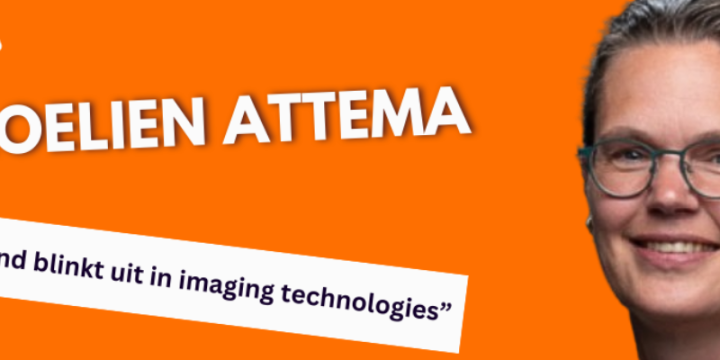Er zijn grote stappen gezet om de Einstein Telescope in het grensgebied van België, Nederland en Duitsland te kunnen bouwen. Dat bleek tijdens de vierde ministeriële top over dit project. De Vlaamse regering reserveert alvast 200 miljoen voor het project. Daarnaast ondersteunen België en Nederland de stappen die in Duitsland worden gezet om ook daar definitief geld voor de bouw van de Einstein Telescope te reserveren. Ten slotte werd tijdens de top bekendgemaakt dat de eerste resultaten van de boorcampagne als voorlopige conclusie opleveren dat de ondergrond in het grensgebied van België, Nederland en Duitsland voldoende stabiel is en mogelijkheden biedt de telescoop te bouwen.
Nieuwkomers
Dat nieuws zorgde voor groot optimisme bij de verantwoordelijke ministers uit Noordrijn-Westfalen, België en Nederland tijdens de conferentie in Kerkrade over de ondergrondse telescoop.
Na verkiezingen en regeringsvorming in Nederland en België is in Nederland en België een aantal nieuwe ministers verantwoordelijk voor het project Einstein Telescope. Vanuit Wallonië is dat minister Pierre-Yves Jeholet, in Vlaanderen is dat minister-president Matthias Diependaele en vanuit Nederland minister Eppo Bruins, die tevens gastheer was.
Commitment in de drie landen
Nadat minister Bruins in Nederland op Prinsjesdag extra geld voor de Einstein Telescope bekend maakte, doet nu ook Vlaanderen dat.
Minister-President van Vlaanderen Matthias Diependaele:
Een sterk engagement van alle betrokken overheden zal ons in staat stellen om deze unieke wetenschappelijke infrastructuur daadwerkelijk naar de Euregio Maas-Rijn te halen. Daarom heeft de nieuwe Vlaamse regering alvast een eerste reservering van 200 miljoen euro in haar begroting ingeschreven.
Bovendien zegde Gonça Türkeli-Dehnert, staatssecretaris van het ministerie van Cultuur en Onderzoek van Noordrijn-Westfalen tijdens de ministeriele ontmoeting vandaag 7,9 miljoen extra toe. Dat is goed nieuws. Samen met eerdere de financiële reserveringen is er nu in totaal meer dan een miljard euro beschikbaar voor de Einstein Telescope.
Ook op federaal niveau in Duitsland zijn er goede stappen voor de Einstein Telescope gezet. Daar loopt een aanvraag om de Einstein Telescope op de Duitse prioriteitenlijst voor grote wetenschappelijke infrastructuren te krijgen. Dat is een noodzakelijke voorwaarde voor een financiële bijdrage. Zowel ministers van de betrokken Duitse deelstaten als de Nederlandse en Belgische ministers hebben aangegeven dit voorstel te steunen.
Goede boringen: harde rotsen gunstig
Een belangrijke voorwaarde voor de bouw van de Einstein Telescope is dat de bodem daar geschikt voor is. Om dat te bepalen is op elf locaties in het grensgebied van België, Nederland en Duitsland tot een diepte van gemiddeld 300 meter geboord. Nog niet alle analyses zijn gedaan, maar vandaag werd bekend dat de eerste voorlopige conclusies er goed uit zien. Gebleken is dat de ondergrond uit hardere rotslagen bestaat dan aanvankelijk werd aangenomen. Voor het bouwen van een ondergrondse onderzoeksinfrastructuur is dat gunstig. De geanalyseerde data van de boringen zijn onafhankelijk geverifieerd door de geologische dienst van TNO.
Minister Eppo Bruins (Onderwijs, Cultuur en Wetenschap) reageert opgetogen:
We zijn samen echt weer een stap verder op weg naar de Einstein Telescope in onze grensregio. De Vlaamse investering is heel goed nieuws en ook Duitsland zet stappen. Bovendien geven de eerste resultaten van de grondboringen het plan letterlijk en figuurlijk meer stevigheid. En dat is goed nieuws. Samen kunnen we met de Einstein Telescope echt een flinke impuls geven aan de wetenschap, maatschappij en economie in onze landen.
Deze boorcampagne en de verzamelde data zeggen overigens nog niks over de vraag waar de drie hoekpunten voor de ondergrondse telescoop precies komen. Daarvoor is verder geologisch onderzoek nodig. Daarnaast moet seismisch onderzoek aantonen dat het gebied voldoende ruisvrij is om de telescoop optimaal zwaartekrachtsgolven te laten meten. Verder moet uit civieltechnisch onderzoek blijken hoe de bouw van de ondergrondse tunnels en hoekpunten mogelijk is. Daarnaast bepaalt onderzoek naar de omgevingseffecten mede de meest geschikte locatie.
Einstein Telescope van grote waarde
Met de Einstein Telescope, een ondergrondse driehoek van gigantische buizen, kunnen wetenschappsers zwaartekrachtgolven meten, zoals nu nog niet kan. Daarmee kunnen we meer te weten komen over het ontstaan van het universum. Een wetenschappelijk topinstrument als de Einstein Telescope is van grote waarde voor de wetenschap, economie en maatschappij. Studies laten zien dat elke geïnvesteerde euro dubbel en dwars terugverdiend wordt, en er naar verwachting duizenden extra banen in het grensgebied van de drie landen komen. Zowel voor wetenschappers als vakmensen op gebied van bouw, onderhoud en hospitality.
In 2026 valt het besluit waar de Einstein Telescope gebouwd wordt. Het grensgebied van Duitsland, Nederland en België is samen in de race. Nederland heeft 58 miljoen voor de voorbereiding en een reservering van 870 miljoen voor de bouw.





